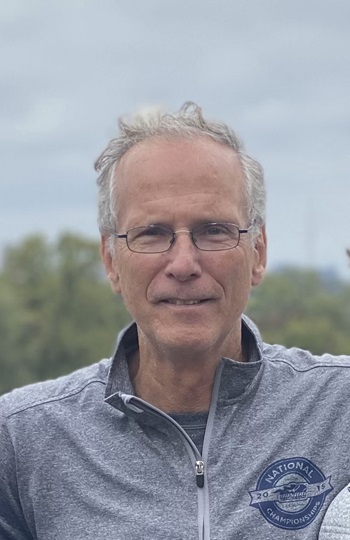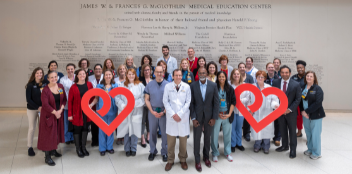Alumnus spotlight: Glenn Barnhart, M.D.
Retired cardiac surgeon finds fulfilling second career as medical educator
Over the course of his 32-year career as a cardiac surgeon, Glenn Barnhart, M.D., witnessed an evolution in the way patients were cared for. He readily accepted this new way of thinking and, in retirement, has found a fulfilling second career as a medical educator and consultant.

Prior to his retirement from clinical practice, Barnhart served as co-executive director of Swedish Heart and Vascular Institute and was chief of cardiac surgery at Swedish Medical Center in Seattle. During his time there, he started the structural heart program and became its surgical director. In the decade since, he has trained residents and young surgeons in how to perform valve surgery and complex operations.
Barnhart has also served as chief medical officer for egnite Health Inc., providing vision for the future of care for structural heart disease patients. “We’re using big data and artificial intelligence to make predictions about patients, for example, when they’re going to convert from moderate to severe disease; this is important in planning for proper timing in their care. There’s no question that the use of artificial intelligence and big data will transform population health management and value-based care in a significant way.”
Concurrently, Barnhart is an educator and consultant for Artivion Inc., lecturing cardiac surgeons and fellows in advanced cardiac surgery techniques both in the U.S. and abroad. He brings the same enthusiasm to medical device maker Atricure Inc., for whom he trains both surgeons and company representatives in the techniques of surgical ablation for atrial fibrillation with emphasis on the Cox Maze IV procedure.
“A lot of surgeons, once they get out of their training and into their first one to three years of practice, still need some mentoring,” he explained. “Teaching young surgeons allows me to contribute to the young surgeons’ continuing education.”
On any given week, Barnhart’s lectures might include a discussion of the disease involved, the natural history of the untreated disease, how to perform the operation, how to avoid complications from the operation, as well as postoperative care. He also teaches operations for atrial fibrillation, complex valve repair and replacement procedures.
Lectures are often followed up with hands-on operations in a mobile lab with cadavers. “You can see in certain surgeons, and especially with the residents, that they finally are able to see the anatomic relationships and understand the important nuances of the operation that result in successful outcomes,” he said.
As operations become more complex, this type of training becomes especially critical.
“Time is the enemy in open-heart operations, and prolonging operations increases the risk to the patient,” Barnhart said. “Some of the operations that have developed for atrial fibrillation, as well as valve repair, are complex and add time to the overall procedure, adding challenges to teaching residents how to do the procedure. This can lead to reluctance on the part of the teaching staff at university centers to allow residents to do certain operations or parts of operations.”
Barnhart came to VCU School of Medicine anticipating a career in family practice or psychiatry. But an elective rotation with the renowned pioneer of heart surgery, Richard Lower, M.D., in his fourth year, sharply changed his focus.
“I was destined for cardiac surgery,” Barnhart said. “I love the intensity. I love making patients that were incredibly sick feel remarkably better. This was especially true with heart transplantation, where I experienced great personal satisfaction: seeing patients who were on their deathbed and restoring their quality of life.”
Keeping the patient at the center of your work will always be the right thing, Barnhart said. “You can never go wrong with that as your North Star.”
Vitals
- Education: VCU School of Medicine, 1973-77; internship and residency, VCU Department of Surgery, 1977-84 (NIH 1979-81); cardiothoracic surgery fellowship, VCU Department of Surgery, 1984-86
- MCV/VCU faculty mentors: Jim Brooks, M.D.; Lazar Greenfield, M.D.; Walter Lawrence, M.D.; H.M. Lee, M.D.; Richard Lower, M.D.; Jim Neifeld, M.D.; Szabolcs Szentpetery, M.D.
.
Back to Spring-2022
Join our Pauley Consortium composed of patients, friends and advocates.

